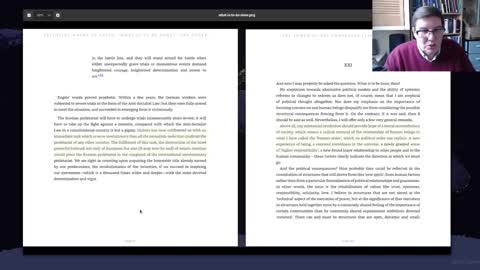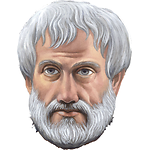
Havel: The Power Of The Powerless - Critical Review
8 videos
Updated 1 year ago
Wherein I have a look at a popular book amongst the so-called "alt-right" (a variety of radical right-wing traditionalism that shares characteristics with socialist movements).
-
The Power of the Powerless - Part 1: Havel, Marx, and Lenin
 Old Philosophy NerdI read The Power of the Powerless. Here are my thoughts, in 5-10 minute chunks. This is the first chunk25 views
Old Philosophy NerdI read The Power of the Powerless. Here are my thoughts, in 5-10 minute chunks. This is the first chunk25 views -
THE POWER OF THE POWERLESS - PART 2: HAVEL, POWER, TRUTH, AND NIETZSCHE
 Old Philosophy NerdHavel describes the modern technocratic dictatorship as one in which there is no distinction between truth and power.3 views
Old Philosophy NerdHavel describes the modern technocratic dictatorship as one in which there is no distinction between truth and power.3 views -
The Power of the Powerless - Part 3: Havel, Power, and Ideology
 Old Philosophy NerdThe core of Havel's thesis, is the opposition between "the authentic aims of life" and "the lie" at the center of totalitarian dictatorship. What stitches this opposition together, is IDEOLOGY.11 views
Old Philosophy NerdThe core of Havel's thesis, is the opposition between "the authentic aims of life" and "the lie" at the center of totalitarian dictatorship. What stitches this opposition together, is IDEOLOGY.11 views -
The Power of the Powerless - Part 4: Ideology, Collectivism, and Smuggled Marxism
 Old Philosophy NerdWhile Havel's description of the relationship between the individual and the state, characterized by a bond of ideology is compelling, still, try as he might, he cannot escape his Marxist training. This is fundamentally a Marxist analysis of his own predicament.5 views
Old Philosophy NerdWhile Havel's description of the relationship between the individual and the state, characterized by a bond of ideology is compelling, still, try as he might, he cannot escape his Marxist training. This is fundamentally a Marxist analysis of his own predicament.5 views -
The Power of the Powerless - Part 5: Postmodernism, Power, and Ideology
 Old Philosophy NerdHelen Pluckrose and James Lindsay provide some useful insights into Chapter 5 of Havel's little book. Turns out he's making the same postmodern critique of his Communist society, as Foucault was making of western liberalism.9 views
Old Philosophy NerdHelen Pluckrose and James Lindsay provide some useful insights into Chapter 5 of Havel's little book. Turns out he's making the same postmodern critique of his Communist society, as Foucault was making of western liberalism.9 views -
The Power of the Powerless - Finale: The Existential Revolution
 Old Philosophy NerdHavel treats us to his ecstatic vision of man after the Existential Revolution2 views
Old Philosophy NerdHavel treats us to his ecstatic vision of man after the Existential Revolution2 views -
The Power of the Powerless - Addendum: The Rousseau Connection
 Old Philosophy NerdThere is a fascinating parallel between Rousseau and Havel, that runs as a through-line through Marx. The entire French tradition in the Enlightenment is responsible for this egalitarian strain of thought.3 views
Old Philosophy NerdThere is a fascinating parallel between Rousseau and Havel, that runs as a through-line through Marx. The entire French tradition in the Enlightenment is responsible for this egalitarian strain of thought.3 views -
Havel Supplement: Yuval Harari Thinks Science is About Power. He's Not Wrong.
 Old Philosophy NerdHarari describes the highest value of science "as an institution" to be power. He's not wrong, but he falls down in the implication that there's nothing wrong with this. His questioner gets the problem intuitively, but can't articulate it. It's precisely what Vaclav Havel describes as the equation of truth and power in modern technocratic totalitarian dictatorships.5 views
Old Philosophy NerdHarari describes the highest value of science "as an institution" to be power. He's not wrong, but he falls down in the implication that there's nothing wrong with this. His questioner gets the problem intuitively, but can't articulate it. It's precisely what Vaclav Havel describes as the equation of truth and power in modern technocratic totalitarian dictatorships.5 views